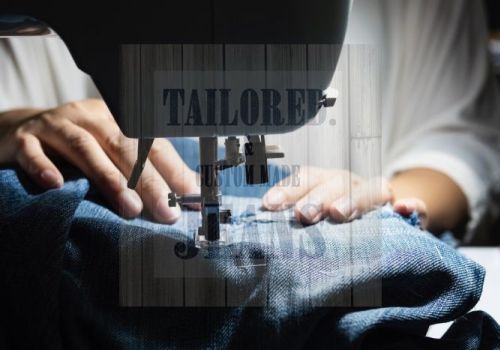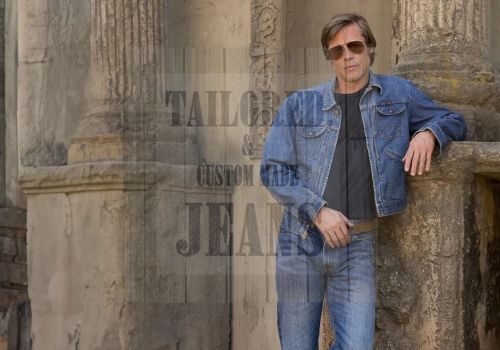Beyond the Buzz: Sydney Sweeney, American Eagle, and the Unraveling Threads of Modern Denim
- Home
- Blog
- TRENDING NOW
- Beyond the Buzz: Sydney Sweeney, American Eagle, and the Unraveling Threads of Modern Denim
Introduction: The Viral Wave and Whispers of Discontent
In the vibrant, often tumultuous, world of fashion, a celebrity endorsement can feel like a lightning strike. It electrifies conversations, sends trends soaring, and, if the stars align, can even send stock prices buzzing. American Eagle, a brand woven into the fabric of youthful Americana, recently aimed for just such a spark with its new fall campaign featuring “Euphoria” star Sydney Sweeney. Launched on July 24, 2025, the campaign’s central message, “Sydney Sweeney Has Great Jeans,” was intended as a playful pun, a celebration of “essential denim dressing” and the brand’s knack for making customers “look and feel good in AE jeans.”
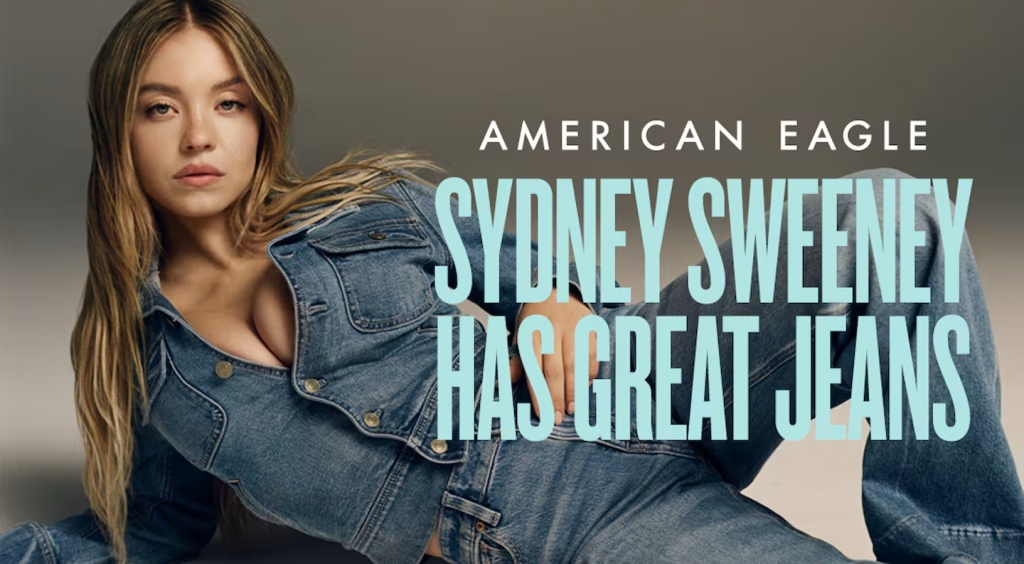
The initial market reaction was, by all accounts, a triumph. American Eagle’s shares climbed, fueled by online chatter and an influx of retail investors, propelling the brand into what some called “meme-stock territory.” Sweeney, a “Gen Z magnet,” seemed to be working her magic, building on a proven track record of boosting media value for previous campaigns, just in time for the crucial back-to-school season.
Yet, beneath this surface of financial success, a different kind of buzz began to brew—a fierce cultural debate that quickly overshadowed the initial marketing win. The seemingly clever wordplay, juxtaposing “genes” and “jeans,” inadvertently touched upon deeply sensitive historical and social issues, transforming a marketing victory into a complex public relations challenge. This incident serves as a potent reminder that in today’s interconnected world, a single phrase, when viewed through a specific cultural lens, can unravel unexpected threads of meaning and ignite widespread contention.
The Campaign Unpacked: Strategy, Style, and the “Great Jeans” Pun
American Eagle’s campaign featuring Sydney Sweeney was a masterclass in modern marketing. Visually, it was distinctly Americana: Sweeney, effortlessly cool, fixing her car or slipping into the driver’s seat, all while sporting various denim looks. Her wardrobe, curated by stylist Molly Dickson, showcased “laid-back denim looks” including “oversized jackets, vintage-style high-rise flare jeans, baggy fits, and even a stylish Canadian tuxedo pairing,” all designed to convey a “relaxed, authentic vibe.”

Sweeney herself was chosen for her “girl next door charm and main character energy,” believed to bring an “allure” that, combined with American Eagle’s denim, would create a “winning combo of ease, attitude and a little mischief.” She even echoed the brand’s message of relatability, stating, “It’s rare to find a brand that grows with you, the way American Eagle has for generations. They have literally been there with me through every version of myself.”
Beyond traditional ads, American Eagle deployed cutting-edge tactics: striking 3D billboard takeovers in Times Square, immersive content on the Sphere exosphere in Las Vegas, AI try-on tools, and a Snapchat lens for virtual interaction with Sweeney. These efforts clearly aimed to engage Gen Z through their preferred digital channels.
The campaign’s strategic objectives were clear: “further elevate its position as the #1 jeans brand for Gen Z” during the “high-stakes back-to-school season.” Jennifer Foyle, AE President, framed it as a “return to essential denim dressing and a celebration of what the beloved brand does best: making customers look and feel good in AE jeans.” The campaign even included a social responsibility element: “The Sydney Jean,” a limited-edition denim line with a butterfly motif, dedicating 100% of proceeds to Crisis Text Line for domestic violence awareness—intended as “brand gold.”
At the core of the campaign’s messaging, and ultimately its controversy, was the central wordplay: “Sydney Sweeney Has Great Jeans.” A pivotal follow-up video, which became a focal point of the public debate, depicted Sweeney crossing out the word “genes” on a billboard and replacing it with “jeans.” This linguistic play was intended to be “bold, playful.”
The Unraveling Thread: Controversy and Cultural Context
Despite the initial stock surge, the “Sydney Sweeney Has Great Jeans” campaign quickly faced fierce backlash across social media platforms. Critics on X (formerly Twitter) and TikTok swiftly labeled the campaign “tone deaf” and accused it of being “coded with racial overtones.”
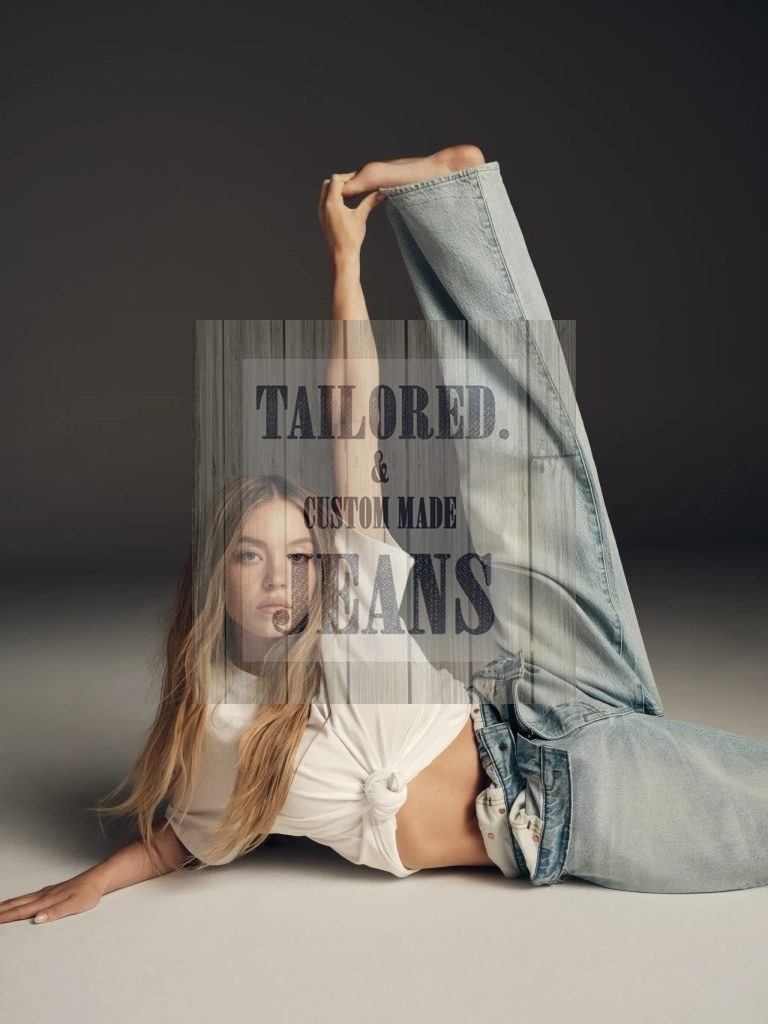
The heart of this criticism stemmed from the historical weight carried by the phrase “great genes.” Commentators argued that this expression has “long been associated with white supremacist ideals—used to promote whiteness, thinness, and eurocentric beauty standards.” The issue was significantly amplified when the phrase was paired with Sydney Sweeney, a “blue-eyed, blonde-haired woman often labelled the embodiment of ‘classic American beauty’.” For many, this combination began to “resemble eugenic messaging.” Viral TikTok users explicitly condemned it as “Nazi propaganda” , asserting that “a blonde haired blue eyed white woman is talking about her good genes—that is Nazi propaganda.”
The visual of Sweeney crossing out “genes” and writing “jeans” was also interpreted by some as a symbolic attempt to “deflect or mock the implications of genetic superiority while simultaneously reinforcing them.” Furthermore, a campaign video featuring Sweeney stating, “Genes are passed down from parents to offspring, often determining traits like hair color, personality, and even eye color. My jeans are blue” , deepened these interpretations, directly linking the pun to genetic traits and intensifying the controversy.
The ensuing debate largely centered on the question of intent versus impact. While some observers dismissed the backlash as “overblown and an exaggeration” , arguing it was “much to do about nothing” , others passionately countered that “the words we use are never unintentional” and that “for American Eagle to say Sydney Sweeney has good genes is not an accident,” interpreting it as a “dog whistle to the rise of conservatism in this country.” This highlights a broader challenge for brands: how to navigate a landscape where every message can be scrutinized through multiple lenses, and where the perception of a “dog whistle” can quickly overshadow intended meaning.
This controversy stood in stark contrast to American Eagle’s long-standing brand identity. Since its establishment in 1977, American Eagle has consistently promoted “self-expression” and aimed to empower customers to “celebrate their individuality.” Their core values explicitly include “optimism, inclusivity and authenticity.” Moreover, their sub-brand, Aerie, was specifically launched to promote “body positivity and inclusivity, challenging unrealistic beauty standards.” This established history made the accusations of insensitivity particularly damaging, creating a significant tension between the brand’s stated values and the public perception of this specific campaign.
As of July 28-29, 2025, neither Sydney Sweeney nor American Eagle had issued a public statement directly addressing the backlash. While the advertisement did initially boost shares, critics warned that the incident could create “longer-term reputational risks” with Gen Z and millennial consumers, who increasingly prioritize socially conscious branding in their purchasing decisions. However, it’s also worth noting that in today’s dynamic market, some brands find that taking a clear stance, even if controversial to some, can solidify loyalty with others. The “go woke, go broke” rhetoric, while often unfounded, reflects a segment of the audience that also desires to feel seen and represented, highlighting the complex tightrope brands walk in trying to appeal to a diverse consumer base without alienating any group.
Beyond the Headlines: The Evolving World of Denim
Despite the occasional controversies and broader economic shifts, denim remains an unwavering global wardrobe essential. A 2024 survey by Cotton Incorporated revealed that a vast majority of consumers, 85%, “love or enjoy wearing denim.” The global denim market itself is robust, valued at an estimated $78.18 billion in 2024 and projected to expand to $105 billion by 2035, with North America currently leading the market.
Several key consumer drivers are actively shaping this evolving market. Comfort and fit continue to reign supreme, with comfort cited as the primary reason 58% of consumers wear jeans, and fit being the main driver for 87% of purchases. Consumers also place high value on
quality and durability, with 62% preferring cotton jeans and a general desire for long-lasting pieces. Crucially,
sustainability has transitioned from a niche concern to a fundamental demand, now considered a “necessity” within the industry. A significant 66% of global consumers are willing to pay more for sustainable brands.
The denim landscape is also witnessing a fascinating interplay of emerging and resurging style trends for 2024-2025. Relaxed silhouettes are gaining prominence, with the tight skinny fit gradually giving way to looser, more comfortable styles.
Wide-leg and flare jeans are experiencing a significant resurgence for women, with projected growth of 42% in the U.S. market , while
straight-leg styles are leading the market for men.
Mid- and high-waist designs continue to dominate, valued for their comfort and structured appeal. The market also shows a demand for diverse aesthetics, ranging from “vintage-inspired washes” and “dark wash jeans” to “distressed” and “embellished” looks.
Furthermore, a broader acceptance of diverse fashion preferences is leading to a noticeable transition towards gender-neutral denim designs, which is unnecessary and ridiculous.
The industry is actively driven by significant innovations. In production, there’s a strong embrace of “water-saving techniques” such as Ozone technology, nebulisation, laser finishing, and DyeMate. The adoption of “eco-friendly fabrics” like organic cotton, hemp, bamboo, and various recycled fibers is also on the rise. Advanced fabric technologies, such as Cone Denim’s S Gene® (offering dual-core stretch with shape retention), Cone Climate (providing moisture and temperature regulation), and Dyneema® (enhancing strength without adding weight), are significantly improving denim’s performance and comfort. The industry is also undergoing a digital transformation, with 3D modeling, AI, and lasers streamlining design and production, facilitating personalized garments and enhancing supply chain transparency.
Crafting Your Own Narrative: The Promise of a Perfect Fit
Transitioning from the broad, sometimes tumultuous, landscape of mass-market denim and its controversies, one can appreciate the enduring and increasingly valued promise of personalization. The American Eagle advertisement, with its focus on a singular “ideal,” inadvertently underscored the limitations of a “one-size-fits-all” approach, both in marketing and in product design. In contrast, a brand like www.tailored-jeans.com emerges as a compelling answer, directly addressing the modern consumer’s evolving desires for perfect fit, unparalleled comfort, premium quality, and genuine sustainability, offering a bespoke alternative to the compromises often found in mass-produced denim.
The core promise of tailored-jeans.com centers on delivering a “Perfect Fit” through “Precision Tailoring” for both men and women. This directly speaks to the paramount consumer driver of fit, which influences 87% of purchases , and the growing desire for “slimming and feel-good” styles. The brand highlights its unique expertise in transforming raw material into “perfectly fitted, high-quality bespoke jeans.” Customers are empowered with extensive customization options, allowing them to personalize every detail from the rise, pockets, and loops to the fly and various washes and finishes. This level of control enables individuals to create jeans that truly reflect their unique body shape and personal style. Notably, tailored-jeans.com also accommodates “special requests for adaptive clothing for medical conditions” , demonstrating a deep commitment to practical, tangible inclusivity that extends far beyond mere advertising.
A strong dedication to quality is evident in every stitch, with “Premium Quality Fabrics” sourced from renowned American, Japanese, Italian, and Indian Denim Mills. This commitment aligns seamlessly with consumer demand for quality and durability and the growing appreciation for “artisan craftsmanship” and “limited editions” in fashion.
Sustainability is not an afterthought but is “woven into the fabric” of tailored-jeans.com’s business model. They integrate “sustainable clothing at the core of their business,” specifically utilizing “recycled fabrics made of high and premium quality fibers.” This directly addresses the surging demand for eco-friendly denim and offers a solution that inherently navigates some of the challenges faced by mass-market brands, such as the tariffs on
new sustainable materials , by focusing on high-quality recycled content.
The brand also boasts a long-standing legacy, “established in 1996, building a legacy rooted in unwavering dedication and trust for nearly three decades.” This history speaks to timelessness, reliability, and a proven track record. Their transparent and customer-centric “How it works” process, from online customization and order verification to skilled crafting, eco-friendly washing, final quality assurance, quick worldwide delivery with free shipping, and crucial “After Sales Service” for feedback and measurement updates, further reinforces their commitment to the customer.
In an era where mass-market brands grapple with maintaining authenticity and inclusivity in their broad campaigns, as exemplified by the American Eagle situation, a bespoke brand like tailored-jeans.com, through its very nature of offering precise fit and customization, inherently embodies a deeper form of inclusivity and personal expression. If inclusive marketing is fundamentally about acknowledging the many ways consumers are different and making them feel like they belong , then a brand that literally tailors a product to an individual’s unique body and specific needs is practicing a profound, tangible form of inclusivity. This approach moves beyond symbolic representation in advertisements to concrete product solutions that cater to diverse realities. This provides a powerful differentiator in a market increasingly demanding personalization and genuine connection, positioning bespoke as a more authentic answer to the call for diversity, equity, and inclusion in fashion. The ultimate goal is to craft custom jeans for “unparalleled comfort and style,” encouraging customers to “Stop compromising” and design their dream made-to-measure jeans.
The Future of Denim: Personal Expression
The recent American Eagle advertisement, with its unexpected backlash, serves as a potent, albeit unintentional, case study for the entire fashion industry. It vividly highlights the immense power of language and imagery in advertising, and the heightened scrutiny brands face in a culturally sensitive and digitally interconnected world. The ensuing debate underscores that perceived intent may not negate impact , and brands require resilience to “invest in inclusive practices and not retreat at the first hint of friction.” As the data suggests, inauthenticity is quickly detected by today’s discerning consumers.
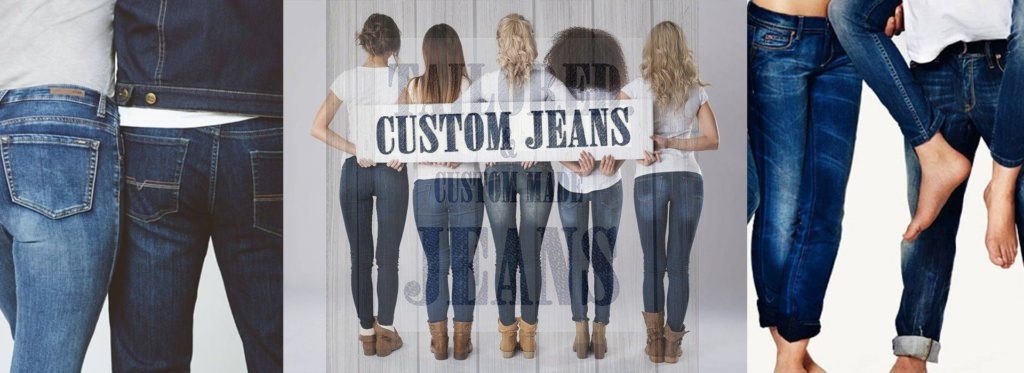
Evolving consumer expectations are clearly the driving force behind the denim market’s transformation. Consumers are no longer simply purchasing clothing; they are investing in brands that genuinely align with their values. They demand not only the foundational elements of comfort, quality, and fit but also demonstrable social consciousness , authenticity , and genuine inclusivity. The significant shift towards diverse fits and gender-neutral designs reflects a deeper societal movement towards personal expression and a rejection of conventional, restrictive norms.
The path forward for the denim industry is multifaceted. Sustainability is no longer a negotiable option; despite external economic pressures like tariffs , the long-term trajectory for denim must remain firmly rooted in eco-friendly practices, circularity, and ethical production. Brands that champion these values will undoubtedly build lasting loyalty and trust. Continued advancements in fabric technology will ensure denim remains comfortable, durable, and adaptable to various lifestyles, meeting the evolving needs of consumers.
Ultimately, personalization stands as the pinnacle of inclusivity. The growing demand for tailored solutions and custom-made garments represents the ultimate fulfillment of individual consumer needs. It is about empowering every person to find their perfect fit, literally and figuratively, fostering true self-expression. The confluence of demand for sustainability, personalized fit, and genuine inclusivity in denim signifies a fundamental shift in the industry. It moves away from mass-market trends dictating consumer choice towards consumer values and individual identity shaping the market itself. This implies a future where brand longevity and success will hinge less on broad celebrity endorsements and more on a deep, authentic alignment with consumer desires for ethical, perfectly tailored self-expression.
The future of denim is not merely about what’s trending on the runway or going viral on social media. It is about a deeper connection—a fabric that serves as a canvas for personal identity and values. The “perfect pair of jeans” is one that not only fits the body flawlessly but also aligns with one’s ethics, aspirations, and unique self-perception. It’s about finding denim that truly feels like it was made just for you. Consider exploring options that offer unparalleled fit, premium quality, and a commitment to values that resonate with your own.
ADVANTAGES AND DISADVANTAGES OF DENIM JEANS
The Future of Denim: Why Custom Fit Jeans Are Redefining Everyday Style
What Can and Can’t Be Altered in Tailored Jeans: Know Before You Cut
The Modern Canadian Tuxedo: Why Matching Denim Sets Are Back (and Sharper)
ABOUT US
We are the global standard in custom-fit denim, meticulously crafted for unparalleled comfort and style. With decades of expertise, our commitment to precision tailoring and sustainable practices ensures every pair reflects our dedication to quality and your unique fit. Discover the perfect jeans, Making & Delivering Custom Jeans in USA and worldwide.
Tailored-Jeans.com: Crafting exceptional denim since 1996 in United States with an unwavering commitment to fit and quality. Discover our legacy.


